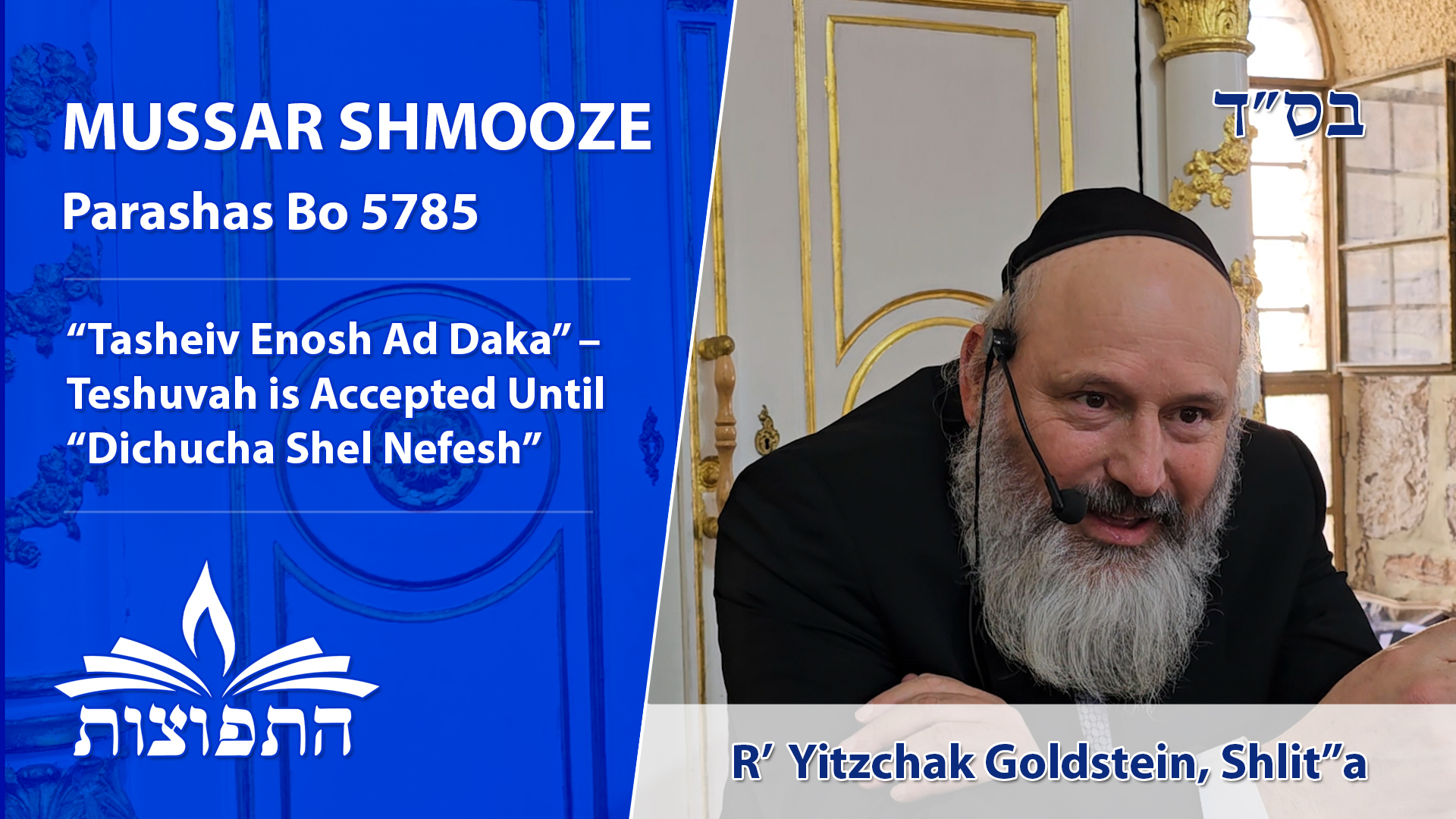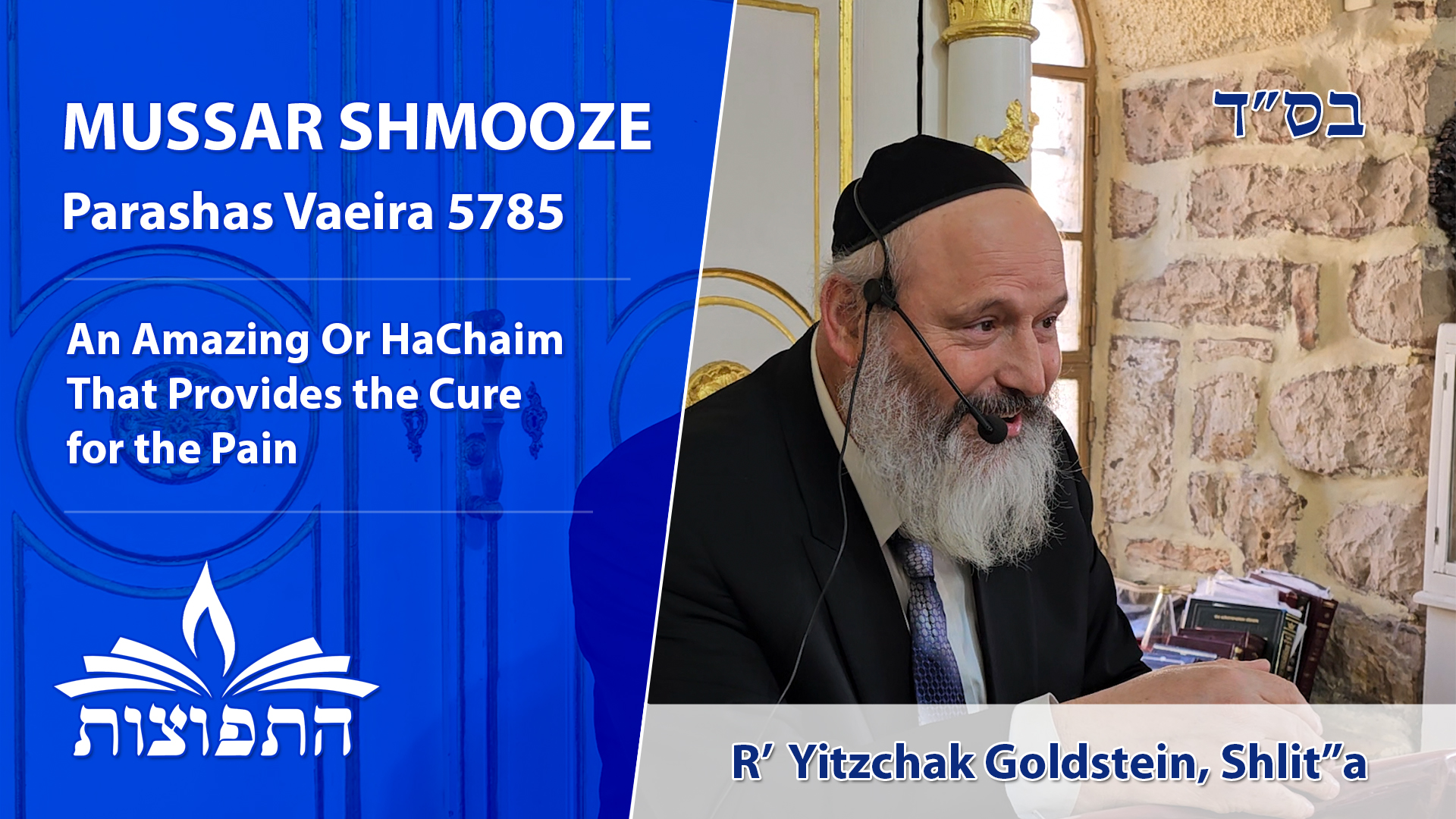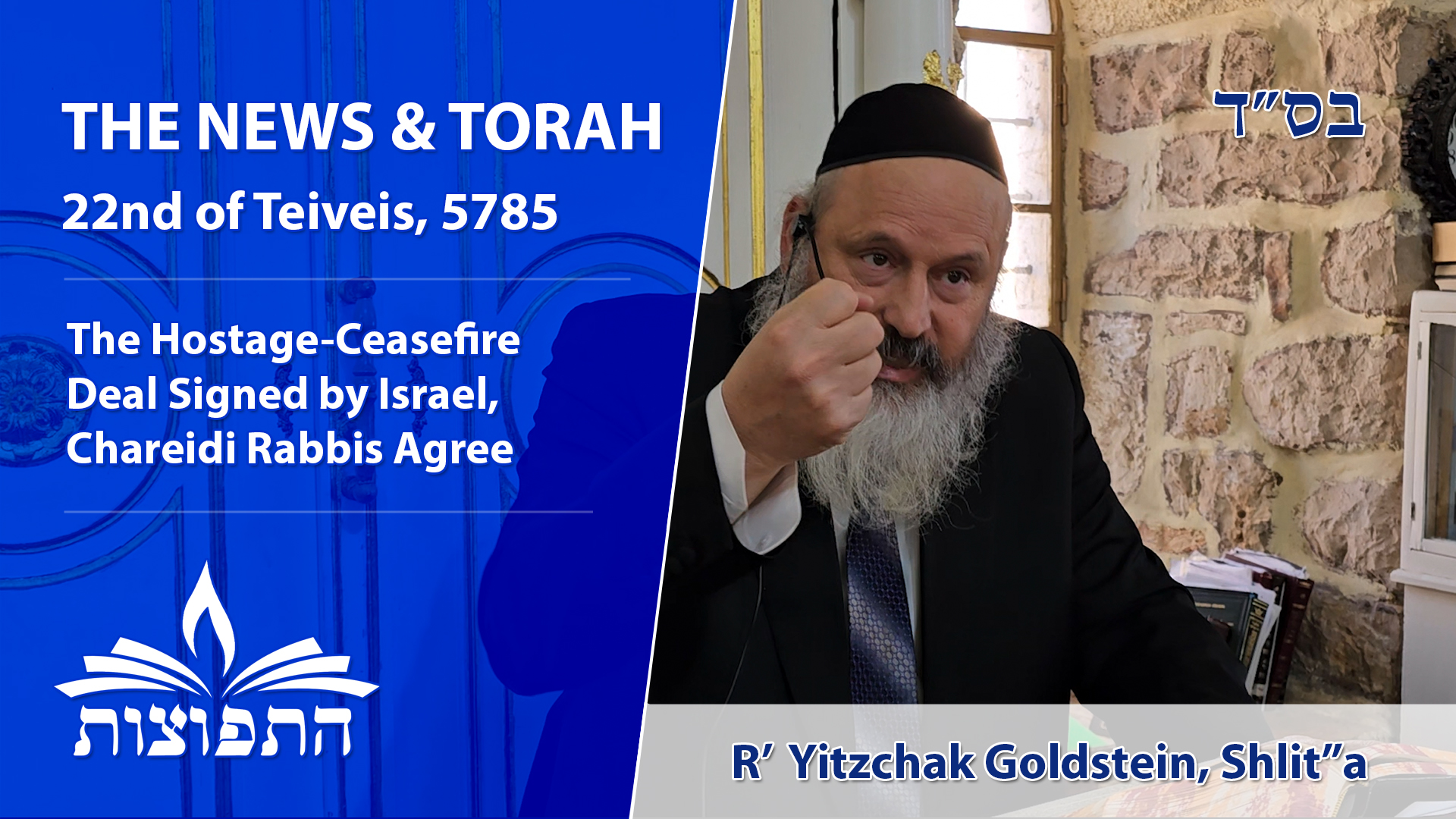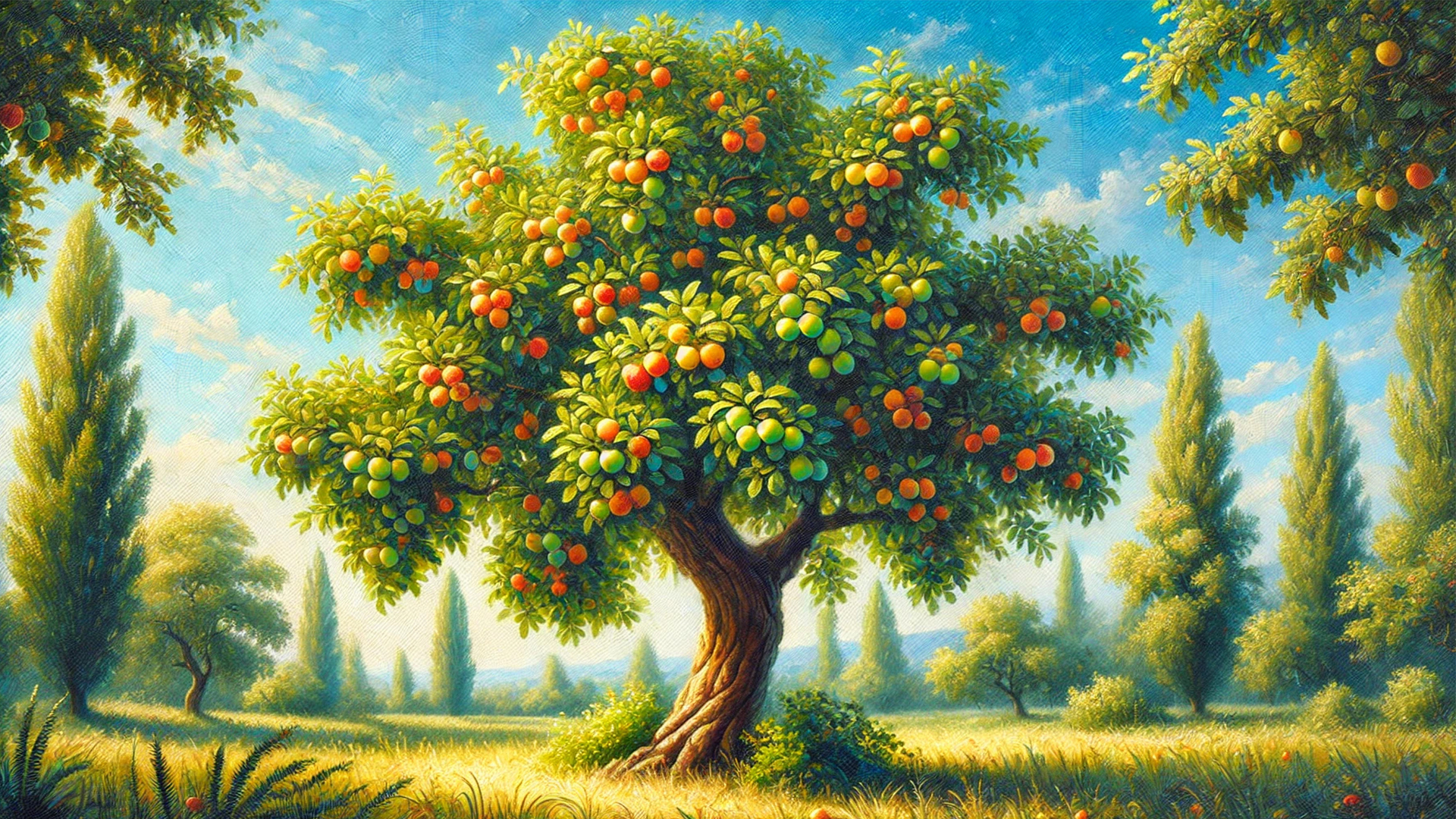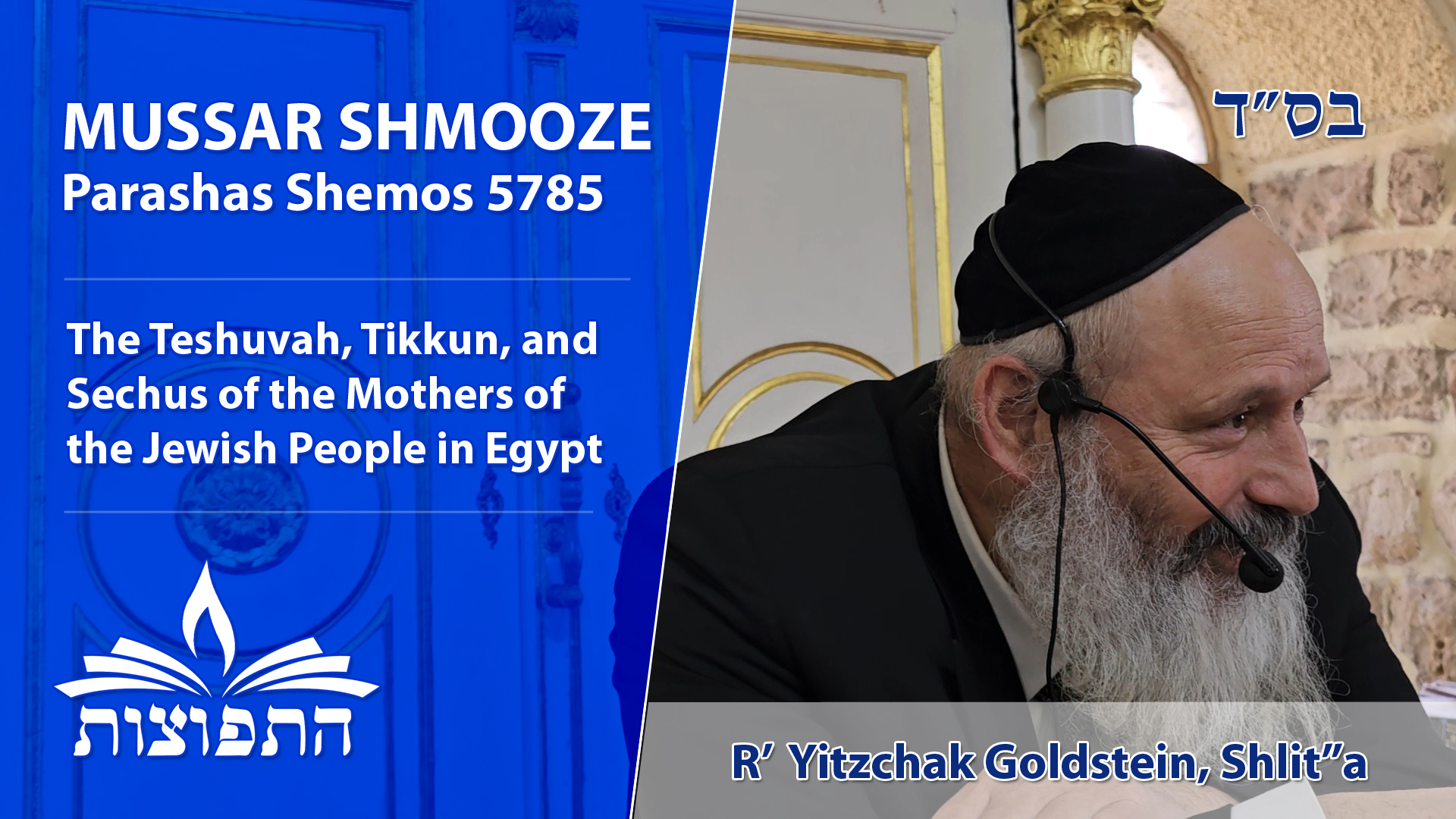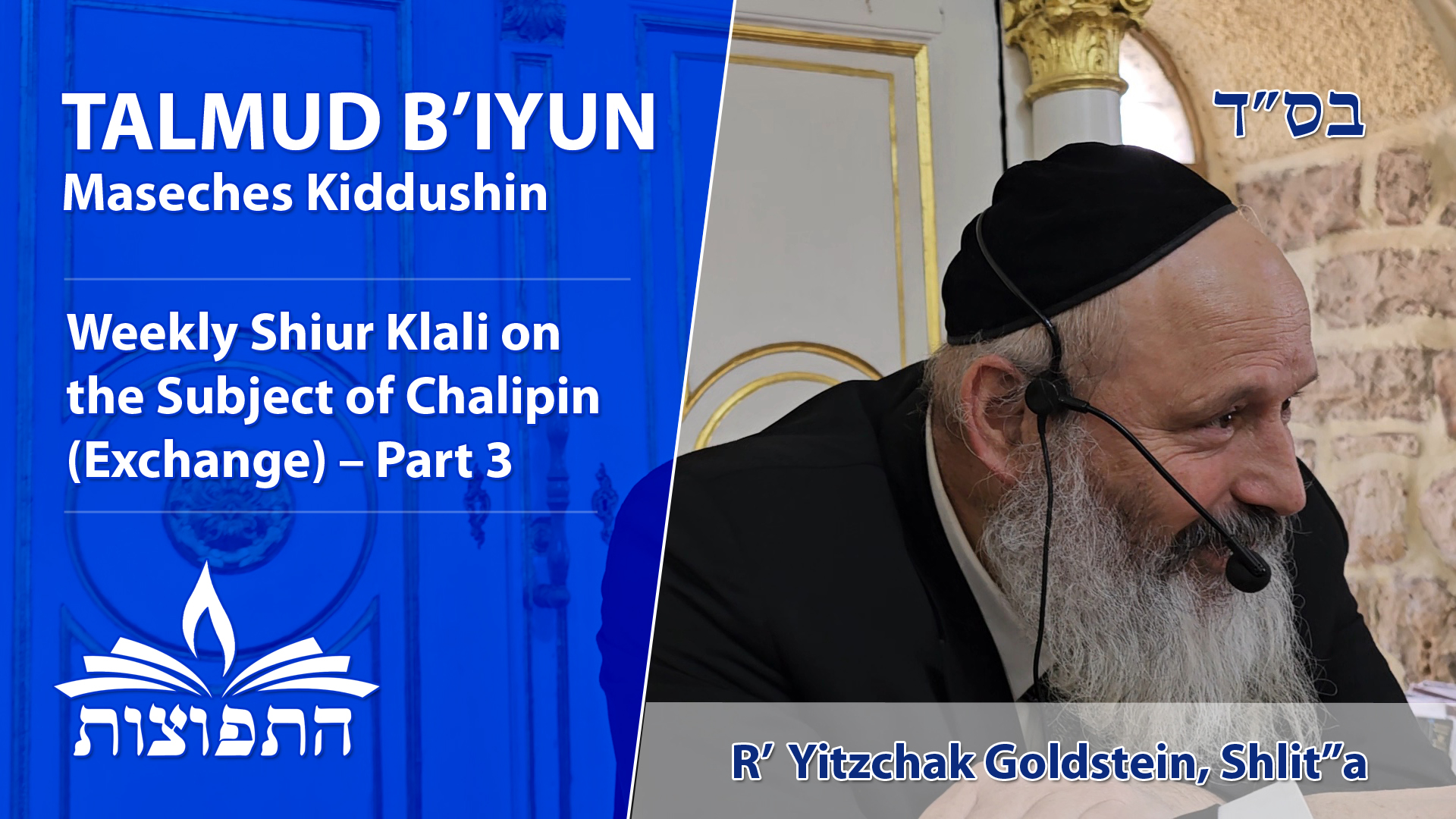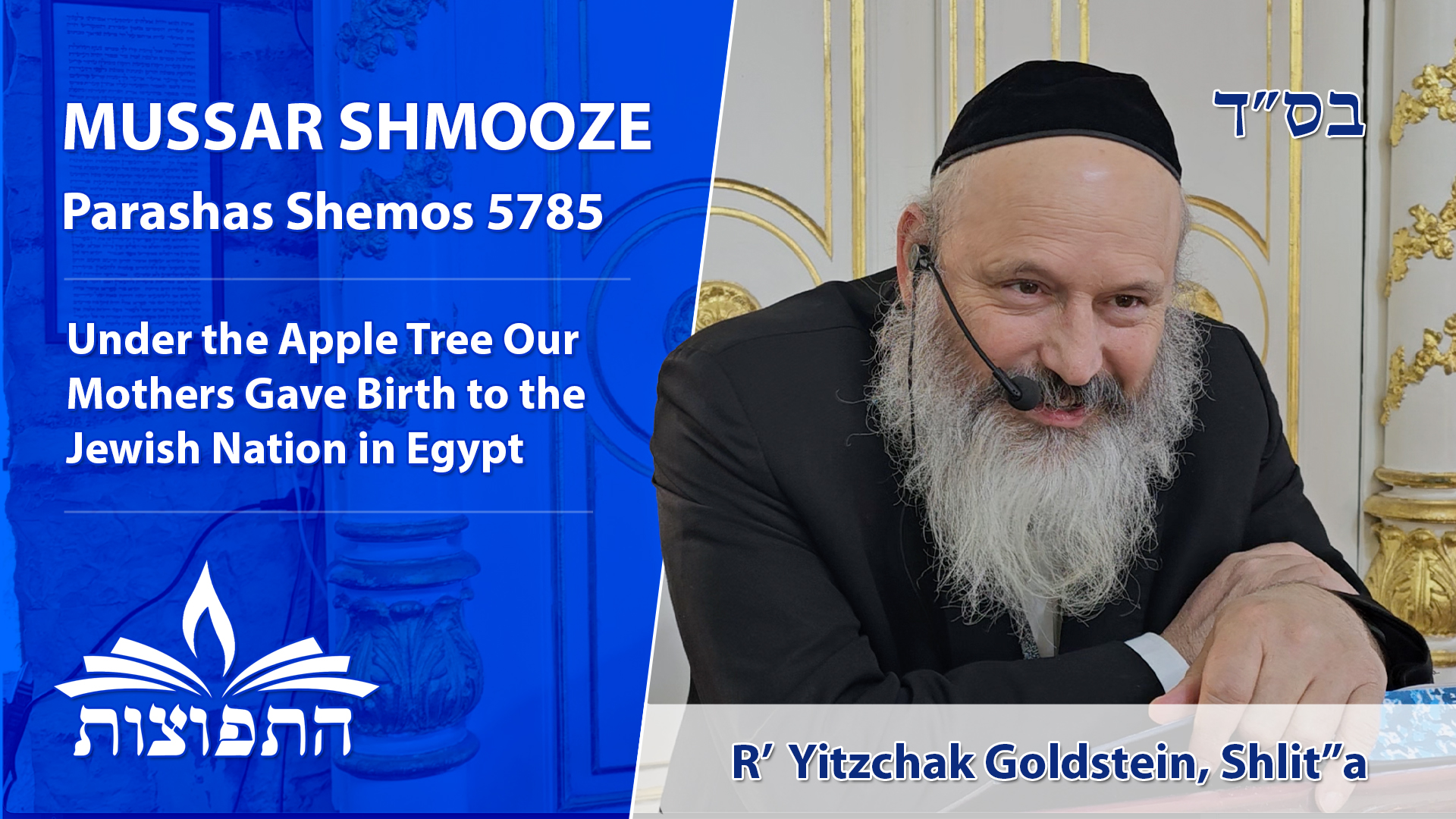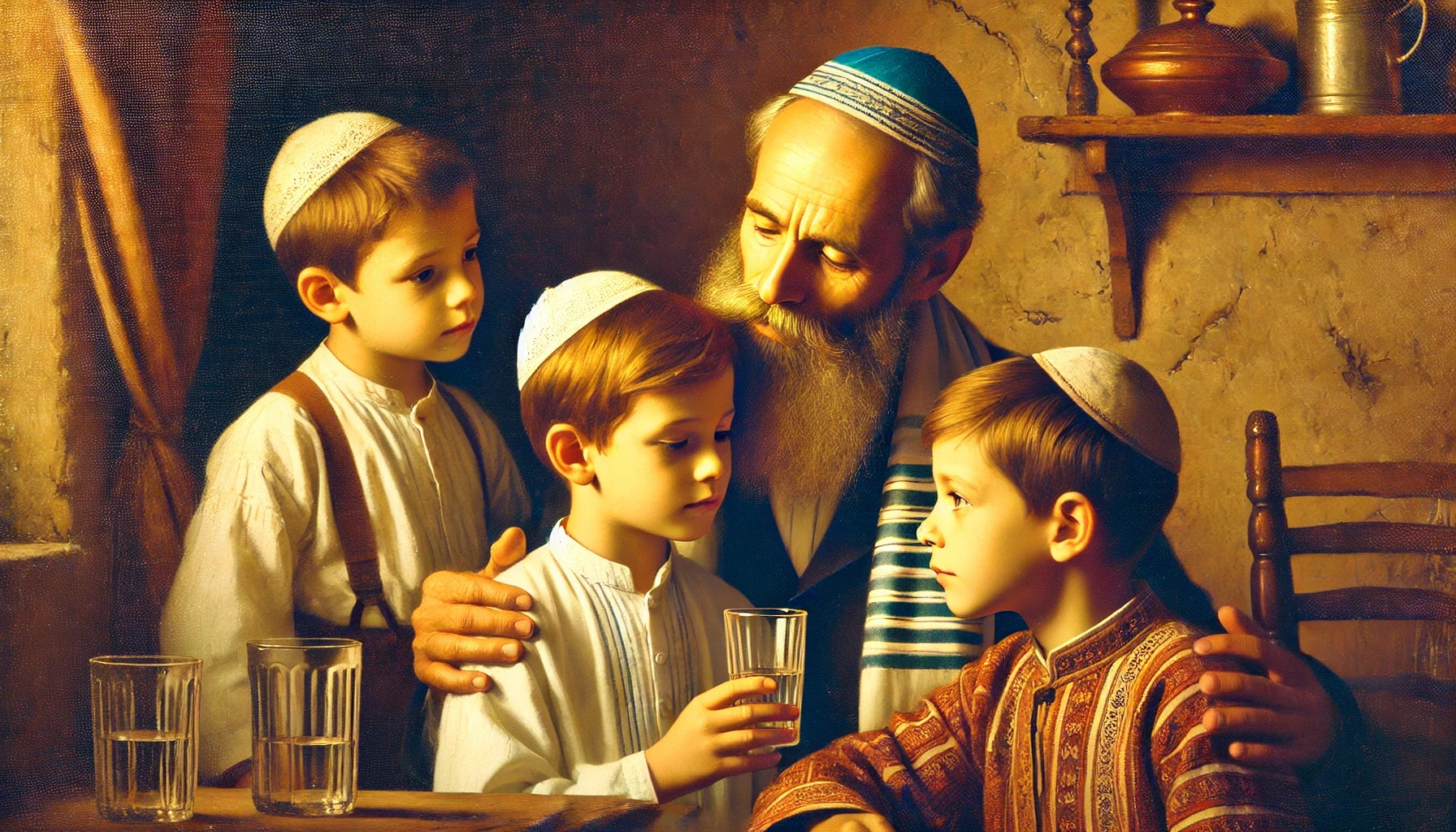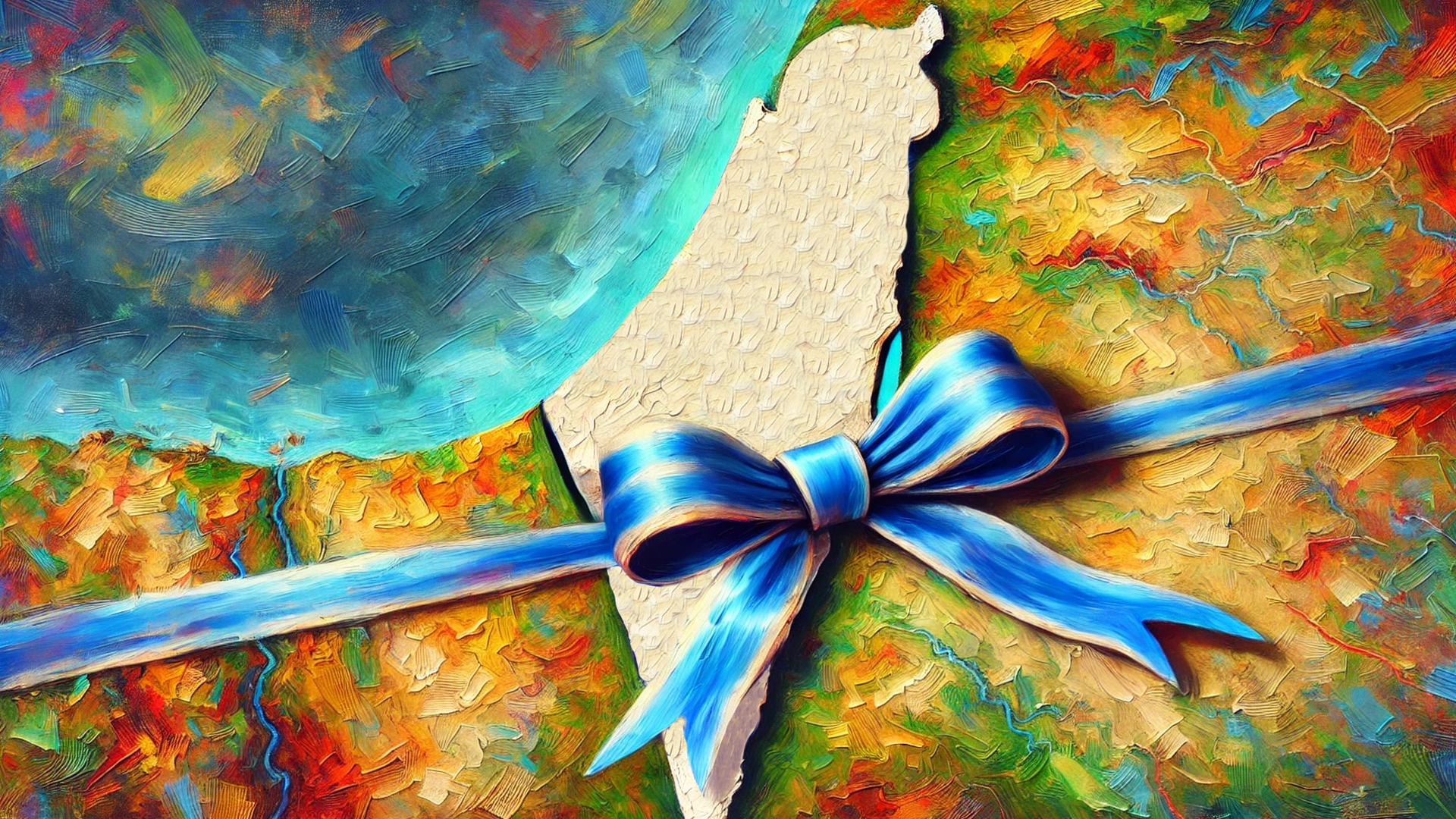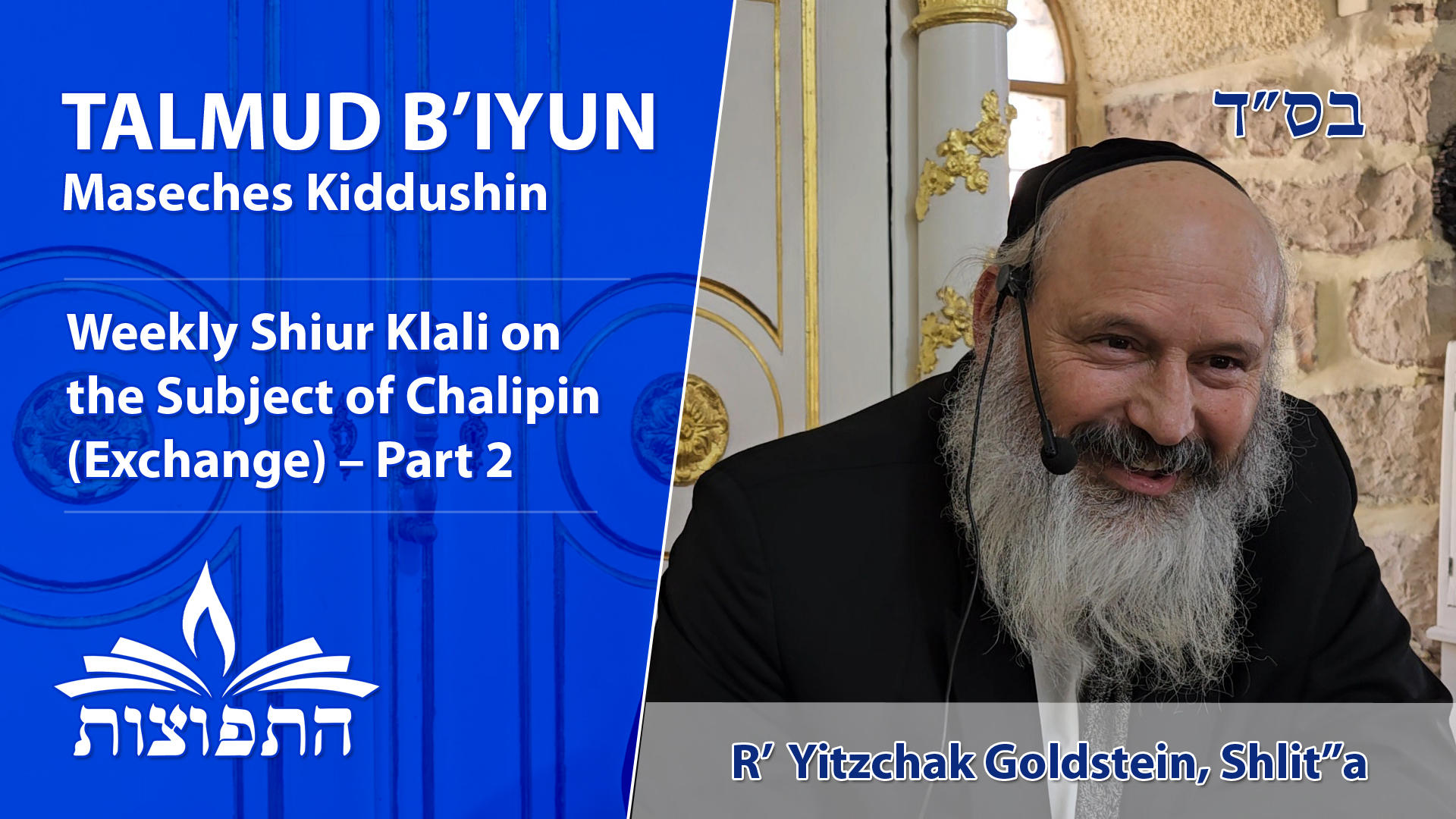Torah From Zion “Tasheiv Enosh Ad Daka” – Teshuvah is Accepted Until “Dichucha Shel Nefesh” January 28th, 2025 / 128th of Teiveis, 5785 https://youtu.be/4nkYTm9TIQg The Rosh Yeshiva speaks about the greatness of HaShem’s mercy in accepting teshuva (repentance) until “dichucha …
The Rosh Yeshiva speaks about the shortness of spirit of the Jewish people in Mitzrayim (Egypt) when Moshe (Moses) spoke to them in Parashas Vaeira (Shemos / Exodus 6:9), and the amazing Or HaChaim that provides the cure for the pain.
The Rosh Yeshiva speaks about the recent news about the hostage-ceasfire deal signed by the State of Israel and Hamas and why Chareidi Rabbis agree in the light of Torah sources.
Belief is not just a state that a person either has or doesn’t have. Rather, it is a mida [trait] of a person—that he believes, that he relies on Hashem, that he has perfect faith. A person has to work hard to achieve this trait of faith.
The Rosh Yeshiva adds to the his mussar shiur from earlier in the week about the teshuvah (repentance), tikkun (rectification), and Sechus (Merit) of the mother of the Jewish people in Mitzrayim (Egypt), rooted in their great emunah (faith) and bitachon (trust) in HaShem and His promise.
Torah From Zion The Subject of Chalipin (Exchange) – Part 12 January 16th, 2025 / 16th of Teiveis, 5785 https://www.youtube.com/watch?v=VQh2Ysgtjd4 The Rosh Yeshiva’s third weekly Talmud B’Iyun (In-Depth) Shiur Klali on the sugiya (subject) of Chalipin (Exchange), Maseches Kiddushin (part …
The Rosh Yeshiva speaks about the pasuk (verse) in Parashas Shemos (Exodus 1:7) that remarkably praises the mothers of the Jewish people in Mitzrayim (Egypt) using the language of sheratzim (insects), and what we should learn from it about our work in bringing Mashiach (the Messiah) by having Jewish children.
Hashem was ready to forgive His own honor, but not that of Klal Yisrael—a lesson for all generations, to uphold the honor of the Klal.
What makes Eretz Yisrael, Torah, and Shabbos unique gifts to the Jewish people? Discover the spiritual lessons and connections in this chapter.
The Rosh Yeshiva’s second weekly Talmud B’Iyun (In-Depth) Shiur Klali on the sugiya (subject) of Chalipin (Exchange), Maseches Kiddushin (part 9 in the whole, daily series), which ties together and concludes the learning on the sugiya for the week.
